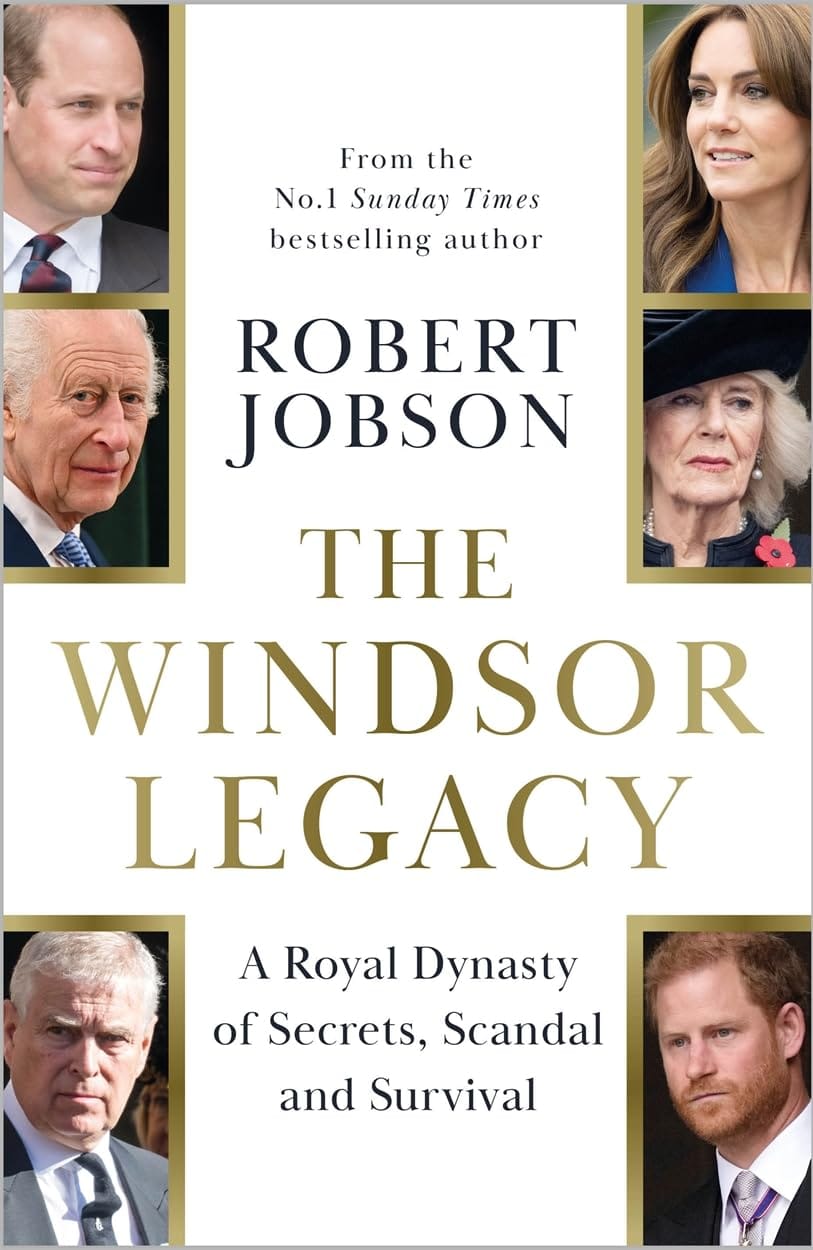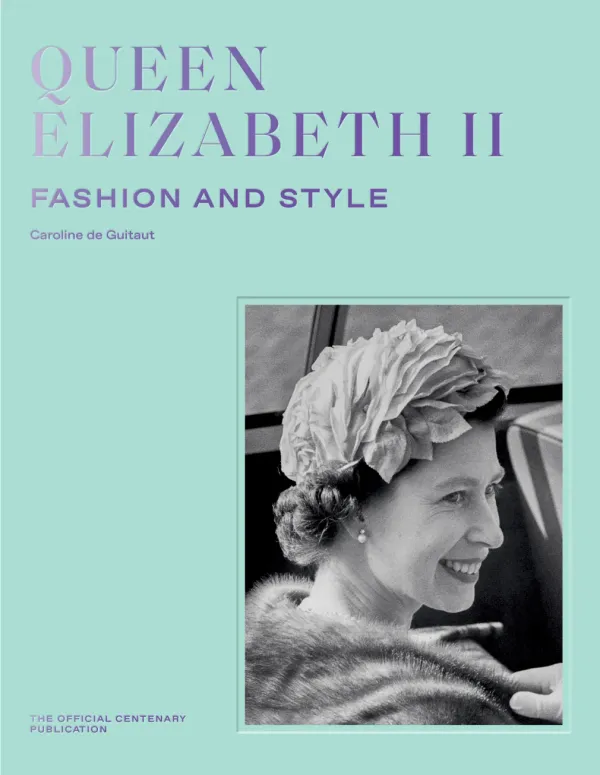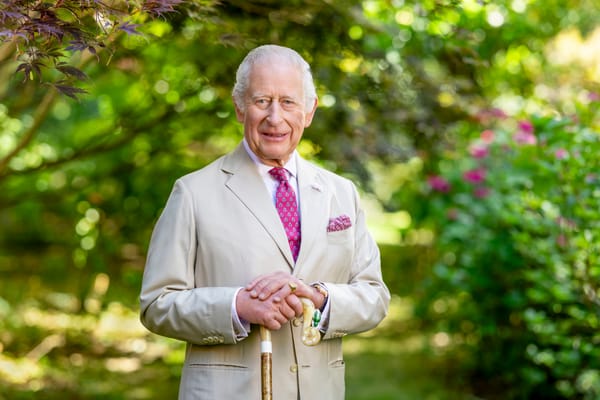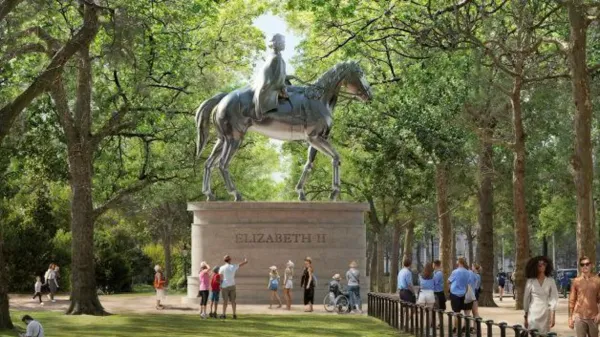Royal Author Rob Jobson Explores the Windsor Legacy in New Historical Book

Royal expert Rob Jobson has released a timely new book examining the remarkable century-long story of the Windsor dynasty, tracing its evolution from 1926 to the present day. He recently gave a press briefing to the Foreign Press Association of London at the Royal United Services Institute in Whitehall (Royaltopia was not there, but as a member we were given a recording of the event to report on).
The Windsor Legacy, which hit shelves last week, offers a sweeping historical perspective on how Britain's royal family has adapted and survived through a tumultuous hundred years. The timing couldn't be more apt, as 2026 will mark the centenary of Queen Elizabeth II's birth on April 21, 1926.
"I thought it would be perfect to start with 1926, the birth of Princess Elizabeth, and look at how the modern Royal Family has developed from that point," Jobson explained during a recent book event. "Having covered the Royal Family for over 35 years myself, I've witnessed about a third of this timespan firsthand."
A Dynasty Born from Adaptation
One of the book's central themes is how the Windsor dynasty was created through necessity and adaptation. Jobson traces the family's origins to a critical moment when monarchies across Europe were collapsing in the wake of World War I.
King George V made the pivotal decision to change the family name from Saxe-Coburg-Gotha to Windsor in 1917, establishing what would become a new royal house. "The Windsors were able to establish a lot of traditions that frankly were not traditions at all—they created them to adapt and survive," Jobson noted.
Many ceremonies and rituals now considered ancient royal traditions were actually invented during this period. The investiture of the Prince of Wales in Wales, for instance, only happened once before Charles's 1969 ceremony. "They realized they had to appeal to the masses and change with the times," Jobson said.
Queen Elizabeth II's Enduring Legacy
The book devotes considerable attention to Queen Elizabeth II, whose 70-year reign provided an unprecedented sense of stability and continuity. Her centenary next year offers an opportunity to reflect on her role in shaping the modern monarchy.
"There was a sense of permanency under Queen Elizabeth II," Jobson observed. Her steady hand through decades of social and political change established the monarchy's relevance for the post-war era.
King Charles and the Modern Monarchy
The book examines how King Charles III is approaching his role differently than his mother, with a focus on efficiency rather than mere streamlining. However, the King's cancer diagnosis shortly after his accession has impacted his ability to implement some desired changes.
"He may well have had a desire to change things dramatically," Jobson revealed. "He was certainly starting to do that before having to live with cancer."
Despite health challenges—both the King's cancer and the Princess of Wales's cancer treatment—the monarchy has demonstrated resilience. "I think they're just about coming through," Jobson said.
Prince William's Vision for the Future
A significant portion of the book focuses on Prince William's emerging vision for a more modern, streamlined monarchy. The Prince has spoken about wanting "royalty with a small r"—a more accessible, relatable institution.
Jobson reports that William envisions a household "probably 50% the size it is today," though this approach has some traditionalists concerned. "You've got to be careful not to throw the baby out with the bathwater," one former courtier told him.
The Prince of Wales has been projecting what Jobson describes as a "JFK-type" image—dynamic, outward-facing, and unstoppable. "There's a sort of unstoppable drive about him at the moment," Jobson observed. "He realizes the monarchy has got to adapt and change, rather like his great-great-grandfather George V."
The Power of Royal Diplomacy
The book also examines the monarchy's continuing role in soft power diplomacy. Jobson points to President Trump's Windsor Castle visit as an example of the "convening power" the monarchy still possesses.
"There was a very compelling case for that sort of convening power of the monarchy," he said, particularly as Britain navigates its post-Brexit identity on the world stage.
Jobson predicts significant state visits in the coming year, possibly including a return visit to America for the 250th anniversary of American independence.
Surprising Royal Revelations
Among the book's more colorful anecdotes is the previously untold story of a bag of Camilla's jewels being stolen from a service station on the M40 motorway. Three staff members had stopped for coffee while traveling to RAF Brize Norton, leaving a bag marked "Duchess of Cornwall" containing royal jewels in the car.
A gang operating at the service station stole the bag. Rather than involving police, security services tracked down the thieves and negotiated the jewels' return without prosecution. The incident never became public until now.
Historical Precedents for Change
The book draws fascinating parallels between past and present. Jobson notes that King George V once dramatically streamlined the royal family by removing royal titles from extended family members, turning princes into lords and earls.
"He got rid of all the princes," Jobson explained. "That was a bit of a clean sweep to give the House of Windsor a new sense of a new beginning."
This precedent could inform future decisions about the size and scope of the royal family, particularly as Prince William shapes his vision for the monarchy's future.
The Commonwealth Question
Looking ahead, Jobson predicts significant changes in the Commonwealth realms. He believes countries like Australia, New Zealand, and possibly Canada will likely become republics within the next 50 years.
"I don't think in 50 years' time there'll probably be a royal as head of state in Australia or New Zealand," he said, noting the trend already visible in Caribbean nations like Barbados.
However, he's more optimistic about the monarchy's future in Britain itself, where the royal family remains intrinsically woven into the constitution. "The system in this country will probably stay the same," he predicted.
A Delicate Balance
Throughout the book, Jobson emphasizes that the monarchy must maintain a delicate balance between tradition and modernization. "Changing too much too soon can be dangerous, but equally changing nothing can be dangerous as well," he noted.
The royals must appeal to younger, more diverse audiences while not abandoning those who value tradition, pomp, and pageantry. It's a tightrope walk that has defined the Windsor dynasty since its creation.
The Trust Factor
Ultimately, Jobson argues, the monarchy's survival depends on maintaining public trust—something he describes as "fragile." The Windsors have successfully maintained that trust for a century, but nothing is guaranteed.
"I think there's an arrogance in saying it'll go on forever," Jobson said. "I don't believe they should take that as read."
As the monarchy enters what he calls a "moment of flux," the coming years will test whether the institution can continue adapting as successfully as it has for the past hundred years.
The Windsor Legacy is available now from bookshops and online retailers in the UK (it will be released in the USA in January - Amazon Link), offering readers a comprehensive look at how one family has navigated a century of unprecedented change while remaining at the heart of British national life.




